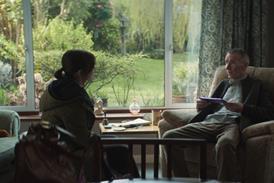A thief has stolen from your store. They rushed in and grabbed stock from your shelves while you were busy, taking money from your business and damaging your livelihood. Did your customers see anything that could help catch them? Do they even realise the effect this act will have on you and your ability to serve them?
All too often retailers say that the public views shoplifting as a victimless crime. However, a South Yorkshire Police-led partnership between fire service, health service and the local community is aiming to alter that view, starting with changing the opinions of local young people.
The Lifewise Life Skills Safety Centre in Templeborough uses realistically mocked-up businesses to teach young people that crime against shop owners damages not only the store owner, but the entire community, too.
The centre has had a huge helping hand from the Co-operative Group, which several months ago turned the Lifewise fake corner shop into an accurate mock-up of a Co-op convenience store. The store is stocked out like any normal shop and is used as a backdrop for several different scenarios, such as potentially violent incidents or shoplifting.
In one mocked-up situation, schoolchildren are invited to browse the store while a man runs in and flees with stolen stock. They are then asked what they remember about the man, if they saw what he stole and which way he went. The exercise teaches them to be observant while conveying that what the person did was wrong and how it damages the retailer.
Another exercise involves one of the pupils standing behind the counter and acting as shopworker. A would-be robber comes in and demands money from the till. This gets the youngsters to empathise with shopkeepers who are put in this position.
The centre's development manager Duncan Batty says that the hard-hitting scenarios are important when educating people about the effects of crime. "It's important that they learn that stealing is wrong at an early age and that this behaviour does have consequences for both the criminal and local businesses," he says. "As well as the standard scenarios, we also have talks on anti-social behaviour and how it affects businesses and communities."
Co-operative area loss prevention manager Ryan Latham says that informing children about the responsibilities they have is important as they will be the customers of the future. "In a few years they will be the ones spending money in our and other retailers' stores," he says.
"It's essential that they understand the pressures retailers face and how incidents such as theft and robbery can affect their businesses."
It's not only schoolchildren who can make use of the store, however. Batty hopes that retailers who want to train staff in handling age-related sales or dealing with confrontational situations will also benefit from it. "We make the facilities available to any retailer or group who wants to ensure that their staff are up-to-date on the sale of age-restricted products," he says.
"It's a great way of providing extra training for staff away from the store where they could be interrupted or distracted by the running of the business."
Batty believes the Co-operative's help has been invaluable in making the retail experience as real as possible. "It just didn't look like a realistic convenience store before," he says. "No matter how much we tried to make something look like a shop, without a familiar brand it's difficult to make it convincing. Convenience stores in the area look modern and have technology to match, and with this refurbishment our shop reflects this."
The revamped store may have been officially open for only a few months, but it is already the most popular set in the centre. "It's an amazing resource to have and the children who visit the store respond really well to the scenarios we have in there," says Batty. "Even if we're not using it for a particular tour, they'll crowd around it and want to go in."
As well as the grocery items that most convenience stores stock, it contains a working CCTV system, a phone line that connects to an operator in the centre, an ATM and a till. And like other Co-operative stores it also plays classical music, a device to discourage anti-social behaviour outside of the store.
Latham says that the store is almost an exact replica of a regular Co-op branch. "All of the fittings, stock and equipment come from our stores and suppliers," he says. "There's nothing in there that wouldn't be in any normal store. Even the cash machine outside is authentic. The only thing that this one doesn't have is money in the till!"
He claims that it was an easy decision for the group to get involved with the centre. "This was an opportunity for us to support the great work being done in the community by the centre," says Latham. "The Co-operative Group members are community retailers and issues such as shoplifting, age-related sales and anti-social behaviour affect our stores on a daily basis. Anything that can be done to reach out into the community and show them what we and other retailers are facing is a positive step."
Latham adds: "It's a fantastic resource to help educate young people about real-life situations that affect both retailers and those people they serve."
All too often retailers say that the public views shoplifting as a victimless crime. However, a South Yorkshire Police-led partnership between fire service, health service and the local community is aiming to alter that view, starting with changing the opinions of local young people.
The Lifewise Life Skills Safety Centre in Templeborough uses realistically mocked-up businesses to teach young people that crime against shop owners damages not only the store owner, but the entire community, too.
The centre has had a huge helping hand from the Co-operative Group, which several months ago turned the Lifewise fake corner shop into an accurate mock-up of a Co-op convenience store. The store is stocked out like any normal shop and is used as a backdrop for several different scenarios, such as potentially violent incidents or shoplifting.
In one mocked-up situation, schoolchildren are invited to browse the store while a man runs in and flees with stolen stock. They are then asked what they remember about the man, if they saw what he stole and which way he went. The exercise teaches them to be observant while conveying that what the person did was wrong and how it damages the retailer.
Another exercise involves one of the pupils standing behind the counter and acting as shopworker. A would-be robber comes in and demands money from the till. This gets the youngsters to empathise with shopkeepers who are put in this position.
The centre's development manager Duncan Batty says that the hard-hitting scenarios are important when educating people about the effects of crime. "It's important that they learn that stealing is wrong at an early age and that this behaviour does have consequences for both the criminal and local businesses," he says. "As well as the standard scenarios, we also have talks on anti-social behaviour and how it affects businesses and communities."
Co-operative area loss prevention manager Ryan Latham says that informing children about the responsibilities they have is important as they will be the customers of the future. "In a few years they will be the ones spending money in our and other retailers' stores," he says.
"It's essential that they understand the pressures retailers face and how incidents such as theft and robbery can affect their businesses."
It's not only schoolchildren who can make use of the store, however. Batty hopes that retailers who want to train staff in handling age-related sales or dealing with confrontational situations will also benefit from it. "We make the facilities available to any retailer or group who wants to ensure that their staff are up-to-date on the sale of age-restricted products," he says.
"It's a great way of providing extra training for staff away from the store where they could be interrupted or distracted by the running of the business."
Batty believes the Co-operative's help has been invaluable in making the retail experience as real as possible. "It just didn't look like a realistic convenience store before," he says. "No matter how much we tried to make something look like a shop, without a familiar brand it's difficult to make it convincing. Convenience stores in the area look modern and have technology to match, and with this refurbishment our shop reflects this."
The revamped store may have been officially open for only a few months, but it is already the most popular set in the centre. "It's an amazing resource to have and the children who visit the store respond really well to the scenarios we have in there," says Batty. "Even if we're not using it for a particular tour, they'll crowd around it and want to go in."
As well as the grocery items that most convenience stores stock, it contains a working CCTV system, a phone line that connects to an operator in the centre, an ATM and a till. And like other Co-operative stores it also plays classical music, a device to discourage anti-social behaviour outside of the store.
Latham says that the store is almost an exact replica of a regular Co-op branch. "All of the fittings, stock and equipment come from our stores and suppliers," he says. "There's nothing in there that wouldn't be in any normal store. Even the cash machine outside is authentic. The only thing that this one doesn't have is money in the till!"
He claims that it was an easy decision for the group to get involved with the centre. "This was an opportunity for us to support the great work being done in the community by the centre," says Latham. "The Co-operative Group members are community retailers and issues such as shoplifting, age-related sales and anti-social behaviour affect our stores on a daily basis. Anything that can be done to reach out into the community and show them what we and other retailers are facing is a positive step."
Latham adds: "It's a fantastic resource to help educate young people about real-life situations that affect both retailers and those people they serve."





















No comments yet